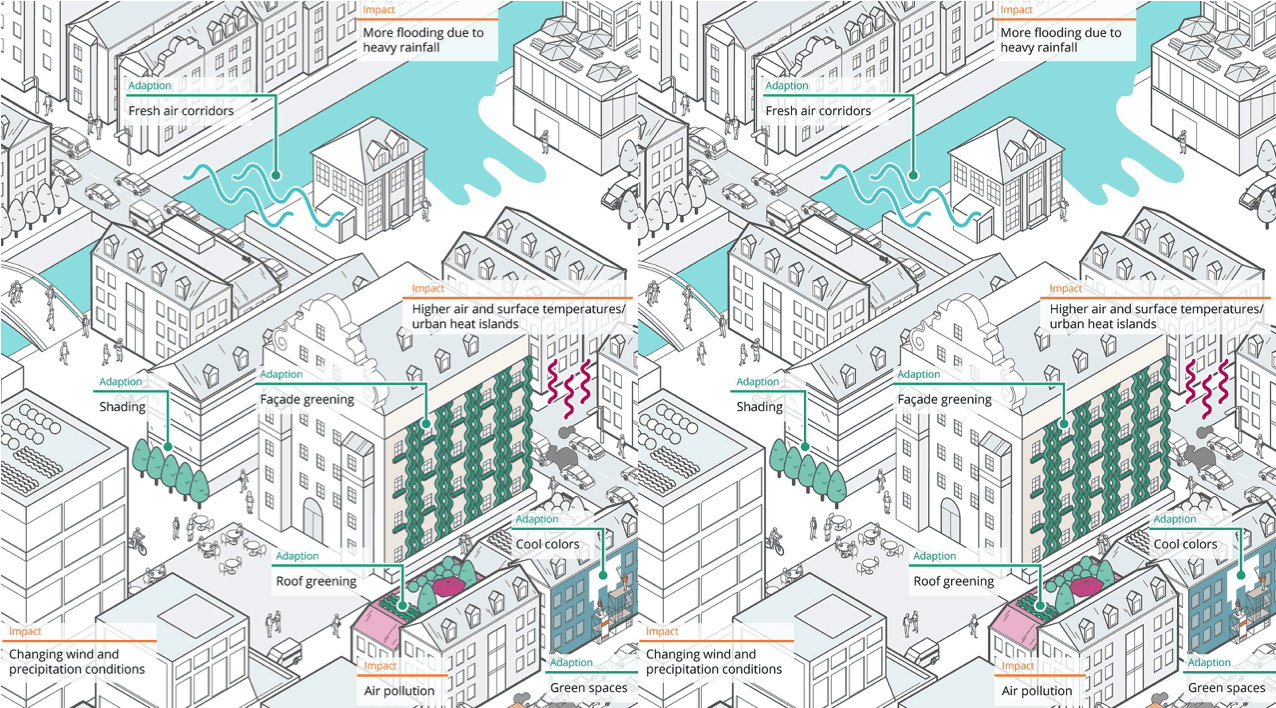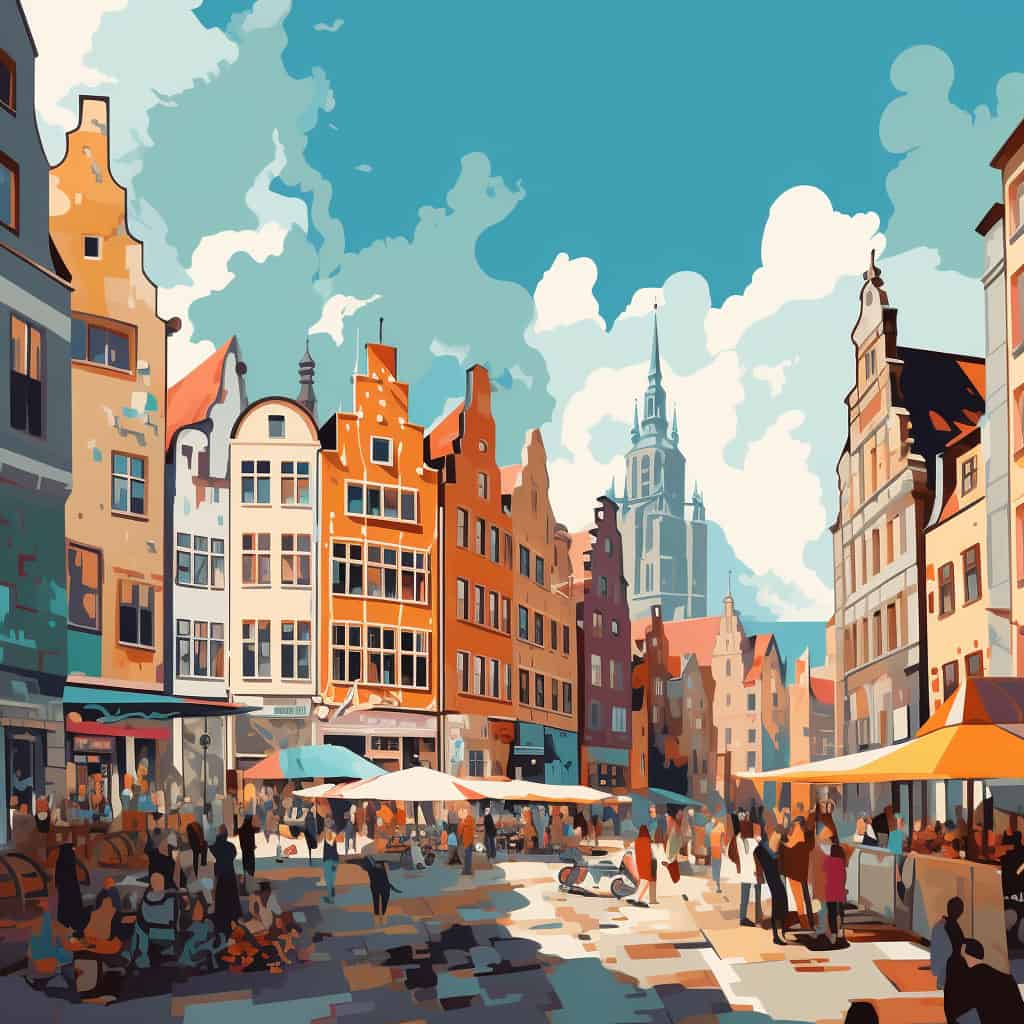
It is common knowledge nowadays. The German automobile industry is in a bind. But German cities are also struggling with the transition to a sustainable urban traffic model – the Verkehrswende. Germany wants a traffic revolution, but how will they go about it?
Cities are key
It’s not going to be easy. A city like Berlin, for example, has to be careful not to miss out on a brighter future. That’s because they are often caught up in the wrangling between various tiers of government. Combined with a lack of personnel and expertise. As a result, there is a risk that the city will not seize the enormous opportunities available to it to do this job properly. In no time at all, stopgaps will likely be put in place for the most part. It’s more a case of political posturing rather than actually developing an integral modern urban mobility strategy for transportation of both people and goods in the city. Berlin could use some external help in this respect.
Even in the south, cities such as Stuttgart and Munich are grappling with excessive particulate matter levels. As well as a still formidable industry that does not seem at present to have a ready-made answer. The reason: they started too late with a smart transformation to a new mobility options which consumers also find acceptable.
So when will the opportunities really be seized upon?
Hamburg is already a bit more daring. Smaller cities like Karlsruhe (comparable to Eindhoven) are more innovative and are attempting to do more. Berlin is the sharing capital. And in Stuttgart companies like Daimler, Porsche, Bosch or IBM are working towards this new world. Institutes like Fraunhofer or KIT have a lot of know-how. Pilots are being run everywhere. But when is it really going to happen? When will German cities dare to give up parking space for the benefit of modern sustainable mobility, public transport, bicycles and pedestrians. Become cities with few cars?
German cities have the opportunity to devise new working models. With public utilities, public transport, energy and housing companies, to name a few, joining forces for new models in districts and metropolitan areas. Industry shouldn’t lobby cities. Instead cities should be lobbying industry. For the sake of the quality of life and the will of their citizens.
Cooperation helps
On 11 and 12 February, four Dutch regions (Brabant, Rotterdam/The Hague, Amsterdam and Utrecht) will visit Stuttgart and Karlsruhe in Baden-Württemberg (the heart of innovative Germany). There they will explore together with Dutch and German parties from government, business and science what role Dutch parties can play in the Verkehrswende in Germany. But vice versa too. What role German parties have or can have in Dutch endeavours?
How should we deal with self-driving vehicles? What role do energy and e-mobility play in future mobility strategies? How can logistics be organized differently? What does traffic management look like in a modern city? And above all, how do we bring all this together in a smart way? These are questions where the cooperation between the various stakeholders from both countries can be of tremendous help. The Netherlands, with its lighter ballast from industry and a slightly more agile government, is in a position to take a few innovative steps forward with relatively more ease. Germany has the mass and power to scale up models effectively. And that’s just what they want to do now.
Hope
The industry will no doubt be hit pretty hard. In his article Maurits Kuypers once again makes clear how polarized the discussion in Germany can be at times. But rest assured, the highest level have come to realize that Germany needs to do far more in order to build a new, sustainable and future-proof (mobility) industry. And that cities need to become more liveable. That also means that real investments will be made. Just as a smaller country like The Netherlands needs other European and global partners, a large country like Germany will not manage to tackles such a monumental task on its own. So, there is definitely plenty of opportunity for excellent cooperation.
Hope is looming on the horizon now that alarm bells are ringing in Germany (even Herbert Diess, the boss of the comparatively progressive Volkswagen also fears his future) and cities realize that more must be done. Hope that the largest EU country will really turn a corner and that a much stronger sustainable mobility sector shall emerge as a result.
About this column:
In a weekly column, written alternately by Tessie Hartjes, Floris Beemster, Bert Overlack, Mary Fiers, Peter de Kock, Eveline van Zeeland, Lucien Engelen, Jan Wouters, Katleen Gabriels and Auke Hoekstra, Innovation Origins tries to figure out what the future will look like. These columnists, occasionally joined by guest bloggers, are all working in their own way on solutions to the problems of our time. So that tomorrow is good. Here are all the previous articles.








